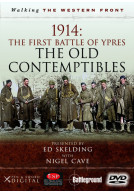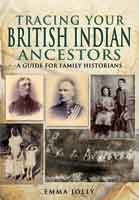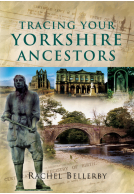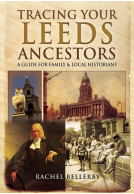Criminal Children (Paperback)
Researching Juvenile Offenders 1820–1920
Imprint: Pen & Sword Family History
Pages: 162
Illustrations: 30
ISBN: 9781526738080
Published: 4th October 2018
(click here for international delivery rates)
Need a currency converter? Check XE.com for live rates
| Other formats available | Price |
|---|---|
| Criminal Children ePub (3.7 MB) Add to Basket | £6.99 |
How were criminal children dealt with in the nineteenth and early twentieth centuries? Over this hundred-year period, ideas about the way children should behave – and how they should be corrected when they misbehaved – changed dramatically, and Emma Watkins and Barry Godfrey, in this accessible and expert guide, provide a fascinating introduction to this neglected subject.
They describe a time in which ‘juvenile delinquency’ was ‘invented’, when the problem of youth crime and youth gangs developed, and society began to think about how to stop criminal children from developing into criminal adults. Through a selection of short biographies of child criminals, they give readers a direct view of the experience of children who spent time in prisons, reformatory schools, industrial schools and borstals, and those who were transported to Australia.
They also include a section showing how researchers can carry out their own research on child offenders, the records they will need and how to use them, so the book is a rare combination of academic guide and how-to-do-it manual. It offers readers cutting-edge scholarship by experts in the field and explains how they can explore the subject and find out about the lives of offending children.
A very satisfying read which feels excellent value. While this book focuses on the criminal lives of children and societies attitudes and responses to child crime, it is a wealth of information and well-presented knowledge on the changing historical times across this 100 year period and how this impacted society. It is book historians and those with an interest in British history and the Victorian period especially will enjoy reading.
Crime Traveller
Read the full review here
This is a valuable book to aid the understanding and researching of child criminals. It is an introduction to how, over a period of one hundred years, ideas changed about how children should behave and how they should be corrected when they misbehaved.
Bristol & Avon FHS
The authors give good research advice and explain relevant records.
This book is based on material from the Digital Panopticon project, which is bringing together into one database the records of London convicts between 1780 and 1925, including those transported to Australia. The book also draws upon records of the Stockport Industrial School.
Family & Community Historical Research Society
The book is well researched and full of interesting insights. Both historians and family historians will find much of interest and value in this book, not just in the parts devoted to legislation and institutions. Comments on individual instances throughout as well as in the case histories reveal a wealth of knowledge of how the justice system operated and how it evolved in the course of a hundred years.
As featured in competition
True Crime Library, Bulletin 508
Societal ideas about the way children should behave - and how young offenders should be corrected - changed dramatically during the 19th and early 20th centuries, and this new family history guide provides a valuable introduction to how they were dealt with.
Family Tree, February 2019
Particularly interesting is the coverage of the different sources for research, including the Digital Panopticon Project which links together disparate records to allow the reconstruction of a juvenile offender's life from courtroom to punishment to adulthood, and informs the case histories. This may be the most useful part of the book.
WDYTYA? magazine, January 2019 – reviewed by Janet Sacks
About Emma Watkins
Emma Watkins is a PhD candidate and a research assistant working on the Digital Panopticon at the University of Liverpool. She has a special interest in criminal juveniles in nineteenth-century England.


















